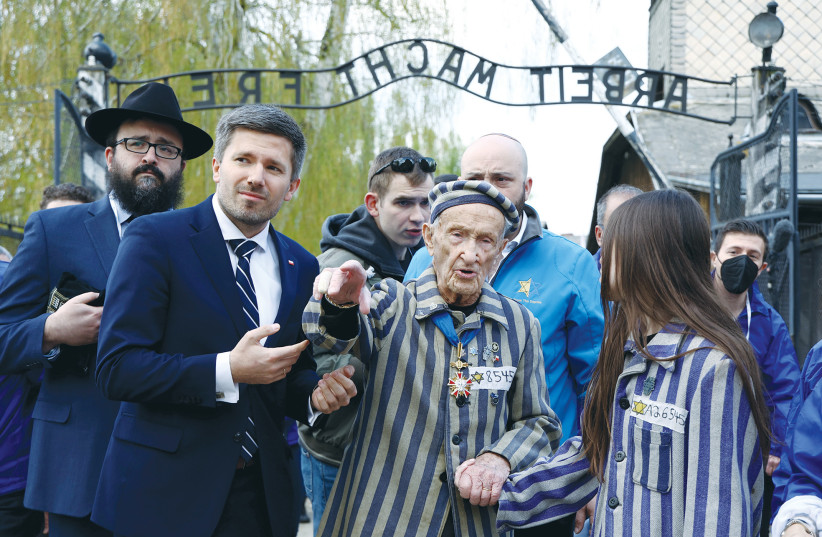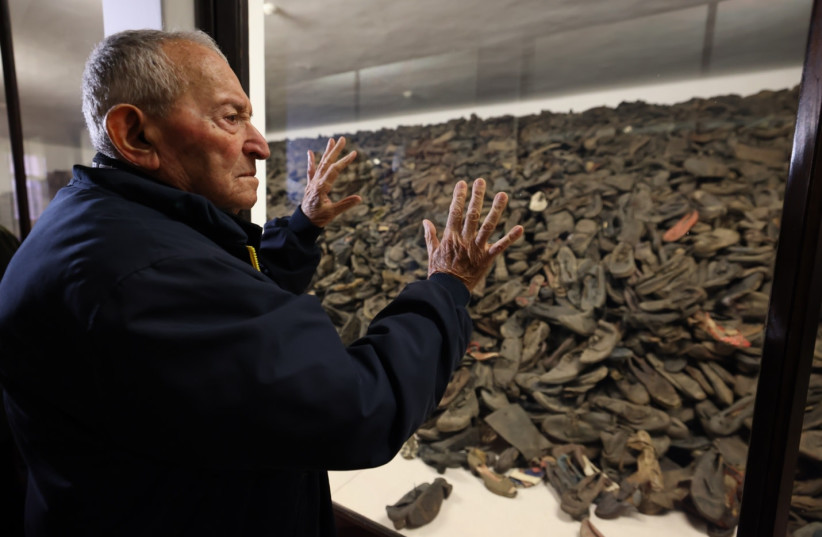As civilizations developed, a calendar or a method to identify days, weeks and years was developed. In the beginning, such calendars marked a momentous occasion such as the year of the reign of a particular ruler. The early Romans, for example, measured dates by counting the rule of a consul, while others in the Roman Empire counted months from the founding of the city of Rome (Ab Urbe Condita or AUC).
In the Seleucid era, the reign of Alexander the Great was used to count the months. As these systems became complicated and confusing, the world adopted the birth of Jesus as the most profound event occurring in Christian Europe to mark dates. Thus BC and AD (Anno Domini) or Common Era (CE) and Before the Common Era (BCE) came into widespread use.
My parents, however, used a different calendar: before Auschwitz and after Auschwitz, and at times it was just “before the camps” and “after the camps.” Both my parents were survivors of the Auschwitz death camp as well as several other horrendous places designed for the exploitation and murder of the Jewish race.
Their experiences and suffering were, by most account, indescribable. Countless survivors, my parents included, warned listeners, “as you were not there; you can’t possibly understand.”
Their life, however, was indelibly marked by their camp experience. No dinner, or family gathering, or holiday celebration ever passed without the Auschwitz experience being mentioned. It seemed that, in our house, there was no dinner where Auschwitz did not appear on the menu.

When my father remembered anything in his past, he would explain, “oh, that was three years before Auschwitz.” Other events would be described as “a year after Auschwitz.” It seemed that for the survivors, the time stamp for all events was “before Auschwitz or after Auschwitz.”
My parents were not the only ones so affected. In conversations with their friends, all survivors, the before and after Auschwitz marker was a common refrain. My mother arrived in Auschwitz, from her small town in Hungary, together with her father and her Jewish neighbors. Immediately after arrival, she was separated from her father, never to see him again.
Her friends all underwent the first “selection,” where men and women were separated and some earmarked for immediate death in the gas chambers, while others for the slow, tortuous death by starvation and inhumane slave labor.
I GREW up hearing my parents’ stories over and over again. After a while, I knew each item by heart, as if I was there with them. But no matter how often I would tell others about their experiences, their warning always resonated in my head. “You could never understand if you were not there.”
More survivors in the family
Recently, my son Yonatan and I paid a visit to our 101-year-old cousin Miriam, whom we fondly call Macu. She lives alone with an attendant in Tel Aviv. She, too, is a survivor. While Auschwitz was the first stop for all Hungarian Jews, those who were not gassed immediately were often sent to a host of other camps to fill the labor needs of the German war machine.
Cousin Miriam started in Auschwitz but was shortly transferred to Bergen-Belsen, along with two cousins. My father was there as well. Naturally, they did not know about each other, as the Nazis in their diabolical cruelty deprived Jews of any news or human contact. Miriam, today, gets precious few visitors. Whatever relatives she has, live in Europe or the US.
Shortly into our visit, after the customary news of family, she lapsed into her stories about Auschwitz. Through her tears, she told us about losing her sister and cousins and loved ones. We dutifully sat and listened to the oft-repeated stories we had heard many times before. Auschwitz occupies her memory, her conscience. It almost seems like that is all she has left.

Carrying on the legacy of lost time
WE, THE children of survivors, also inherited this time stamp. In fact, I believe that the entire Jewish race marks their consciousness with Auschwitz, before and after. Helen Epstein, in her remarkable book Children of the Holocaust: Conversations with Sons and Daughters of Survivors, interviewed children of survivors. Her conclusion was that they all grew up with shared memories of what life was like for their survivor parents.
When I first read this book, I too was amazed. “Wow,” I thought “she is describing my own upbringing.” Had I been interviewed along with the others, I do not believe I would have been able to contribute anything that the other children did not reveal.
I am amazed when I hear Holocaust deniers spread their lies: there was no Auschwitz, there were no gas chambers, there were no crematoria. Read the eerily similar accounts from so many survivors describing their horrendous inhuman treatment. I wish they could have spoken with my parents or my cousin Macu. But they really don’t want the truth. They want to deny even a memory of our suffering.
We are marking the 78th year since the liberation of Auschwitz. By January 1945, my parents and most survivors were long transferred out of the death camp. Lucky for them too. As the Germans realized they were losing the war, they wanted to erase all evidence of their crimes against humanity. They began to liquidate the remnants of the prisoners by gassing and burning them, to eliminate the witnesses.
But it was too little, too late. Far too many Auschwitz “graduates” were alive in other camps, and would live to tell time as “before Auschwitz and after Auschwitz.”
The writer is a professor of Jewish history, Zionism and Holocaust studies, and author of Recipes from Auschwitz – The Survival Stories of Two Hungarian Jews with Historical Insight.
